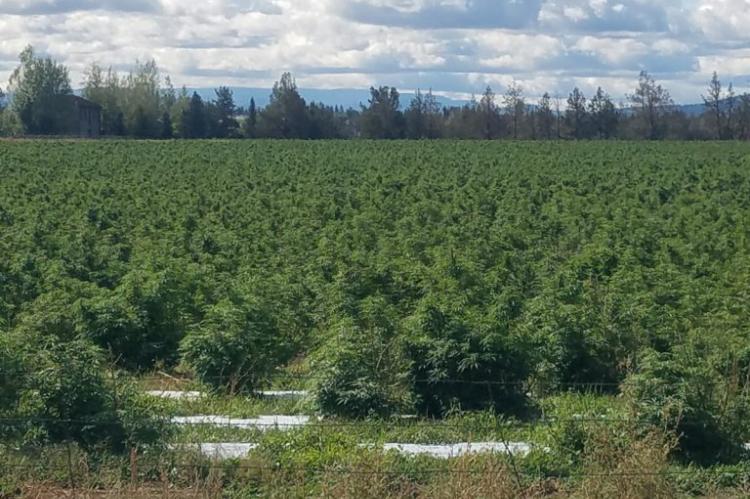USDA suggests farmers pay hemp-promotions fee, offers no more details on rule changes
The agency setting baseline national minimums for hemp production says growers should tax themselves to promote the new crop.
A top official with the U.S. Department of Agriculture (USDA), Heather Pichelman, said Monday in the agency’s first address to hemp growers since releasing national regulations that the industry “has clearly shown interest” in paying fees to promote hemp.
“The idea here is that a rising tide lifts all boats,” she said.
Pichelman also pleaded with the farmers to weigh in on the USDA’s rules published last week, though she gave no details about any possible changes to the agency would consider or when.“It is incredibly important that USDA hears from you now that this rule is out to hear your voice, to hear the things that you agree with and to hear about the things that you think need reconsideration,” Pichelman said.
The remarks came less than a week after the USDA dropped 161 pages of production rules outlining who can grow hemp and how it is to be tested for THC content.
The rules give states minimum requirements to regulate hemp going into the 2020 growing season.
Pichelman said up front during her talk at the Hemp Industries Association annual conference in Charlotte, North Carolina, that she would not answer questions about the new rules or discuss how they will work.
Instead, Pichelman reiterated the agency’s intent to help farmers market the new crop.
One of the opportunities opened up to the hemp industry upon publication of the regulations is the potential for a national research and marketing program under the USDA’s Agricultural Marketing Service (AMS) – also known as a checkoff program.
Pichelman, who leads a promotions division in the agency, did urge hemp industry members to submit comments to the USDA before Dec. 30.
“If you have a question, please share it. USDA may understand. …USDA may need further understanding, but please know, USDA is listening.”
“We take those comments seriously. We read those comments. … Let us hear your voice; let us know how (the rule) affects you. The more substance, the better, so we can really understand.”
She said industry members can contact her as a liaison if they have any difficulty with the comment period or need to contact someone within the department.
The AMS currently oversees promotion orders for 21 different agricultural industries. Some of the agency’s promotions include those for Haas avocados and blueberries as well as the famed “Got Milk?” campaign.
Federal marketing programs, once in place, are mandatory assessments for anyone in the industry who is deemed responsible to pay for it.
But the agency will not institute a checkoff tax unless stakeholders at all levels of the supply chain are in favor of it, she said.
“I’m here today talking about this because the hemp industry has clearly shown interest in a national research and promotion program,” Pichelman said.
The AMS begins a promotion by talking with industry stakeholders, then developing a proposal and opening a public comment period.
The program offers flexibility for setting up the parameters of a research and promotion plan, including how much is assessed per unit and what the unit will be that is assessed. The program can also assess at different levels of the supply chain.
- Log in to post comments

